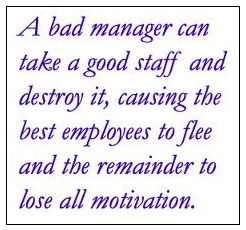Let Your Team Take Care of the Monkeys
What is all this talk about Monkeys you may ask? Well, the article is inspired by one of the most famous management articles written in the Harvard Business Review (HBR) back in 1974 called Management Time – Who’s Got the Monkey?
I think this is a must read for anyone who wants to succeed in their career no matter what your level is today. I actually only read this article 5 years ago and found the examples and advice still very relevant today. In this week’s article, we will talk about tips for managers – why you should leave the Monkeys to your team and focus your time more on Gorillas. Monkeys and Gorillas are basically animated analogies to represent small and large business problems your company is facing. ...



